Expert Logistics
Explore Expert Logistics Solutions and Job Opportunities with Expert Logistics Ltd
Key Takeaways
- Comprehending the Function of Professional Logistics
- Crucial Abilities of a Logistics Specialist
- The Influence of Technology on Supply Chain Management
- Various Fields of Expertise within Logistics
- Obstacles Encountered by Logistics Professionals
- The Prospects of Professional Logistics
Understanding the Role of Expert Logistics
Expert logistics play a crucial role in ensuring that the entire supply chain functions smoothly. This involves managing various logistical elements such as inventory management and warehouse operations to optimise the flow of goods. Effective coordination with suppliers is essential, as it directly impacts freight transport and shipping efficiency. Fulfilment experts are tasked with overseeing these intricate processes, ensuring timely delivery while minimising costs. Their expertise in supply chain management allows for better decision-making regarding freight logistics and inventory control, ultimately enhancing overall operational effectiveness. The ability to adapt to changing market conditions is vital for these professionals as they navigate the complexities of modern logistics.
Definition and Importance of Logistics
Expert logistics encompasses the planning, implementation, and management of the efficient movement and storage of goods, services, and related information within a supply chain. This discipline relies on a robust infrastructure to facilitate the seamless flow of shipments from one point to another. Companies engaged in various trades benefit from comprehensive logistic services, ensuring that their procurement processes are optimised for cost-effectiveness and reliability. Expert logistics acts as a vital component in the overall strategy of a company, as it enhances operational efficiency while reducing potential risks.
The importance of logistics cannot be overstated, as it plays a crucial role in shaping a company’s success. A logistics with extensive experience serves as a risk manager, identifying potential challenges and devising strategies to mitigate them. With the rise of global demand and the complexities of international import and export, effective management of logistics operations has become paramount. Consulting services in expert logistics can provide valuable insights, enabling companies to navigate the ever-evolving landscape of supply chain requirements efficiently.
Key Responsibilities of a Logistics Expert
An expert in logistics plays a crucial role in ensuring that all facets of the supply chain operate smoothly. This includes evaluating options for transport and managing the day-to-day operations of a limited company. With a focus on efficient logistics, these professionals are responsible for coordinating with marketing and finance departments to align their strategies. Their skills also encompass the inspection of goods and materials, ensuring that all products meet quality standards before reaching the customer.
Effective negotiations are essential in the role of a logistics expert. They must liaise with various stakeholders, including suppliers and transport companies, to secure the best contracts for their organisation. Employees within the expert logistics field need to be highly organised and detail-oriented, as they often handle tasks ranging from inventory management to compliance with regulatory requirements. The logistics expert also collaborates closely with the company secretary to maintain accurate records and streamline operational processes.
Essential Skills of a Logistics Expert
A logistics expert plays a critical role in ensuring the efficiency and relevance of operations within a corporation. Proficient analytical thinking and problem-solving abilities allow these professionals to manage complex databases and optimise packages delivery effectively. Strong project management skills are essential for coordinating multiple stakeholders, including decision makers and private limited companies, to align logistics strategies with market demands. Ownership of logistics processes enables experts to implement innovative solutions that not only address current challenges but also attract investment from firms like Bibby Financial Services. Mastering these skills is crucial for success in the dynamic landscape of expert logistics.
Analytical Thinking and ProblemSolving
Analytical thinking is crucial for professionals in expert logistics, as it allows them to assess complex situations and identify the most effective solutions. A logistics expert must navigate through the intricacies of cash flow management while ensuring that routine logistics activities are efficient. These analytical skills enable a logistics person to evaluate data and trends, which is imperative for making informed decisions that impact logistics companies and their operations. Technology plays a vital role in this process, providing tools that enhance analysis and streamline logistical works.
Problem-solving capabilities are essential for overcoming challenges in the logistics sector. Logistics experts, particularly at firms like Expert Logistics Ltd and Logistics Ltd, are frequently faced with unexpected disruptions that require immediate attention. A logistics experts' ability to dissect problems and devise practical solutions directly influences the success of the operations. This requires not only analytical prowess but also the agility to adapt to ever-changing market demands and the integration of advanced technology into their strategies.
Effective Communication and Collaboration
Successful operations in expert logistics rely heavily on effective communication and collaboration among various stakeholders. Logistics professionals must ensure that job details are clearly conveyed between warehouse companies, suppliers, and transportation teams. By maintaining open lines of communication, they can oversee inventory efficiently and address any issues that may arise during the delivery management process. This cohesive approach not only enhances service levels but also contributes to optimising freight options available for international import/export logistics.
Collaboration plays a crucial role in aligning the efforts of different departments involved in supply chain management. Expert logistics professionals interact with suppliers, carriers, and internal teams to ensure that operations run smoothly. Building strong relationships within the industry allows for quick decision-making and effective problem-solving. By working seamlessly together, organisations can improve their ability to manage supply and ensure timely deliveries, ultimately enhancing customer satisfaction and operational efficiency.
- Clear communication channels should be established for all stakeholders.
- Regular meetings should be scheduled to foster collaboration.
- Use technology tools to streamline communication processes.
- Encourage feedback from team members to identify areas for improvement.
- Build trust among teams to facilitate open dialogue and cooperation.
- Develop standard operating procedures to ensure consistency in communication.
- Invest in training to enhance communication skills across the organisation.
The Impact of Technology on Logistics
Technology serves as a catalyst in transforming expert logistics by enhancing the efficiency and accuracy of various processes. Logistic companies leverage advanced systems for inventory inspection, allowing for real-time monitoring of stock levels and reducing discrepancies during physical inventory inspections. Innovations in data analytics streamline warehouse rate negotiations and optimise delivery-related operations, ensuring a more effective coordination across the entire supply chain. The integration of digital platforms simplifies the management of shipping documents and schedules, providing logistics experts with the tools to oversee resources more effectively. With these technological advancements, those with logistic experience can navigate the complexities of modern logistics with greater confidence and precision.
Innovations Transforming the Logistics Industry
The logistics industry is witnessing significant innovations that are redefining how expert logistics managers approach their roles. Advanced technologies now support thorough inspections and enhance operational efficiency within facilities. Domestic operations benefit from streamlined processes that allow for more effective coordination with American suppliers. These advancements create more reliable shipping schedules, ensuring that products move seamlessly from suppliers to consumers.
Another impactful area of innovation lies in the integration of strategic finance into logistics planning. This approach allows expert logistics professionals to assess costs more accurately and identify savings opportunities throughout the supply chain. By leveraging data analytics, managers can optimise facility operations, improve decision-making, and enhance the overall experience for stakeholders involved in the logistics process. These innovations collectively drive the sector towards a more efficient and responsive future.
Role of Data Analytics in Expert Logistics
Data analytics plays a crucial role in expert logistics by enhancing the efficiency of logistic activities. Managers utilise data-driven insights to optimise services, ensuring timely deliveries and accurate tracking of necessary documentation. This approach significantly improves the performance of employees as they align their duties with the strategic objectives of the business. Traders and industrial customers benefit from these advancements, as the insights lead to more informed decision-making and improved customer satisfaction.
Employing data analytics allows logistics experts to identify patterns and trends relevant to their jobs. With access to real-time data, they can anticipate disruptions and proactively address potential challenges. This capability not only enhances operational efficiency but also secures a competitive edge in the market. Experts in logistics must be adept at interpreting data, as it directly impacts their ability to meet the demands of their roles and contribute to the overall success of the business.
Different Areas of Specialisation in Logistics
Expert logistics encompasses various areas of specialisation that are crucial for enhancing operational efficiency. Supply chain management focuses on the seamless flow of goods from importation through to delivery, ensuring that each aspect, including documentation, is meticulously handled. Transportation and distribution involve managing fleets to optimise routes and reduce costs, while also ensuring timely service. Those looking to hire a logistic assistant will find numerous opportunities across these specialisations, especially within plc organisations where prospects can be vast. Understanding these areas aids in driving operational efficiency improvements, making expert logistics an essential component of modern business strategies. For more insights on these specialisations, visit expertlogistics.co.uk.
- Understanding the importance of inventory management to minimise excess stock and reduce holding costs.
- Implementing effective warehousing solutions to streamline storage and retrieval processes.
- Utilising technology, such as logistics software, to enhance visibility and tracking throughout the supply chain.
- Focusing on sustainable logistics practices to reduce environmental impact and promote corporate responsibility.
- Leveraging data analytics for demand forecasting and improving decision-making.
- Ensuring compliance with regulations and standards to avoid legal issues and penalties.
- Building strong relationships with suppliers and partners to foster collaboration and optimise performance.
Supply Chain Management
Expert logistics plays a pivotal role in optimising supply chain management. Professionals in this field are responsible for ensuring that the operation runs smoothly by developing efficient schedules and managing employee roles. A detailed position/job summary highlights the key duties involved, including the coordination of agents for bulk movements and the execution of thorough analysis to improve overall performance. This overview of daily activities showcases how expert logistics can provide an amazing service to businesses seeking to streamline their processes.
The demand for expert logistics professionals continues to rise as companies strive for seamless integration of their supply chains. Similar jobs within the sector require a strong understanding of logistics principles to effectively support the movement of goods. Adapting to market fluctuations and maintaining operational efficiency are crucial aspects of the role. Through careful planning and execution, those working in expert logistics ensure that supply chain dynamics remain robust, ultimately contributing to sustained business growth and customer satisfaction.
Transportation and Distribution
Effective transportation and distribution are critical components of expert logistics. Professionals in this field are tasked with overseeing the delivery of goods from warehouses to clients, ensuring that all aspects, including invoicing and control inventory credit, are meticulously managed. Headquarters play a pivotal role in coordinating these activities, allowing businesses to respond swiftly to customer demands with efficient delivery methods. This includes maintaining close coordination with transport providers and ensuring that necessary contracts are in place for smooth operations.
Detail-oriented logistics experts conduct periodical inspections to guarantee the quality and safety of transported goods. Their decision-making processes are informed by data analysis and real-time tracking, which helps in identifying the best routes and transportation modes. By leveraging these insights, expert logistics professionals can optimise distribution strategies, enhancing overall service performance for businesses while reducing costs.
Challenges Faced by Logistics Experts
Logistics experts often encounter significant challenges in their roles, particularly when it comes to navigating regulatory requirements and managing supply chain disruptions. A proficient division manager must ensure that all offerings comply with the relevant legal standards, which can vary widely across regions. The intricacies of packages delivery terms necessitate meticulous documentation and a clear understanding of the associated processes. As a ltd provider, maintaining effective collaboration across various service activities is vital to meet customer expectations. The complexity of these arrangements further complicates the position, requiring logistics experts to remain agile and resourceful in the face of unanticipated challenges. Addressing these issues effectively allows for smoother operations and enhanced reliability in expert logistics services.
Navigating Regulatory Requirements
Expert logistics professionals must remain vigilant regarding the regulatory landscape governing land transport activities. This includes careful planning and coordination with staff to ensure compliance with relevant laws and standards. A director in this field often oversees complex project management, focusing on aspects such as product sourcing and the meticulous research needed to navigate various regulations while maximising efficiency. Understanding cash and metal allocation is also critical, as this impacts both budget and resource management.
Monitoring compliance is essential to maintaining a reliable schedule and avoiding potential delays. Effective chartering practices should be developed to align with current legal frameworks while facilitating smooth transport operations. Expert logistics relies heavily on an intricate understanding of these regulatory requirements to ensure that all activities are executed flawlessly and within the law, ultimately contributing to the overall success of logistics operations.
Managing Supply Chain Disruptions
Managing supply chain disruptions requires expert logistics professionals to adopt various methods that ensure the continued satisfaction of customers. Activities such as risk monitoring are crucial for identifying potential threats to the supply chain. International corporations, like Mitsubishi, often face unique challenges that necessitate robust insurance arrangements and swift settlements to handle claims effectively. Inventory credit exposure can be mitigated through strategic planning and maintaining appropriate security measures.
Expert logistics must remain agile and responsive to the ever-changing landscape of global trade. Tactics to streamline operations help navigate the complexities of supply chain management, ensuring minimal disruption to the flow of goods. Careful coordination of all logistical activities enables companies to address unforeseen circumstances promptly, safeguarding customer interests and maintaining operational integrity.
The Future of Expert Logistics
The landscape of expert logistics is poised for transformative changes as companies like John’s move to enhance their operational efficiencies. Improvements in technology will streamline processes, allowing for real-time tracking and better resource allocation. Institutions such as Bank PLC are increasingly recognising the need for a robust logistics strategy, reflecting their commitment to a sustainable supply chain. A strong presence in expert logistics will be vital for securing a competitive position in the market. By analysing data and confirming the effectiveness of logistics operations, businesses can develop a comprehensive summary of their progress. This proactive approach will enable them to contribute positively to their overall success while optimising their office functions.
Conclusion
Expert logistics plays a critical role in the success of land transport activities, ensuring that operations run smoothly and efficiently. A logistics director must excel in complex project management while overseeing staff and their various responsibilities. Effective planning is vital for coordinating product sourcing and managing cash flow, particularly when considering metal allocation for shipments. Continuous research and monitoring of schedules and resources lead to timely deliveries and optimal performance. Innovations in chartering strategies further enhance the effectiveness of expert logistics, making it an indispensable element of modern supply chain management.
FAQS
What services does a private limited company like Expert Logistics offer to ensure professional operations and efficient delivery management in Hartford?
A private limited company such as Expert Logistics provides expert service level support, overseeing delivery invoicing, managing accounts, and ensuring confirmation regarding deliveries. Their logistics experts in Hartford are trained to efficiently manage art warehouse operations and improve overall delivery management.
How do logistics experts manage professional operations and delivery management in Hartford?
Logistics experts in Hartford are skilled at overseeing delivery management and ensuring professional operations. They utilise various strategies to enhance efficiency, such as coordinating schedules, managing resources effectively, and overseeing delivery invoicing to streamline the entire logistics process.
How do logistics experts in Hartford oversee delivery invoicing to enhance delivery management?
Logistics experts in Hartford utilise sophisticated systems to oversee delivery invoicing, ensuring accurate tracking and efficient management of the delivery process. Their approach enhances delivery management by integrating real-time data and providing detailed insights into logistics operations and invoicing processes.
How do logistics experts in Hartford provide solutions for effective delivery management?
Logistics experts in Hartford focus on various strategies to ensure efficient delivery management, including route optimisation, performance analysis, and technology integration to streamline operations. By leveraging their expertise, they enhance overall delivery management, ensuring timely and reliable service to clients in Hartford.
How do logistics experts in Hartford ensure efficient delivery management and professional operations across various sectors?
Logistics experts in Hartford provide tailored solutions for delivery management, ensuring professional operations across various sectors. They analyse supply chain processes, optimise routes, and implement advanced technology, ultimately enhancing the efficiency of delivery management and streamlining operations. These expertshartford facilitate smooth logistics operations to meet diverse business needs effectively.
How can businesses in Hartford benefit from the expertise of logistics experts in enhancing their delivery management strategies?
Businesses in Hartford can significantly benefit from logistics experts by implementing tailored delivery management strategies that improve efficiency, reduce costs, and enhance customer satisfaction. Logistics experts in Hartford utilise advanced technologies and methodologies to streamline processes and ensure timely deliveries, which ultimately contributes to more effective overall logistics operations.
What qualifications should businesses in Hartford look for when hiring logistics experts for effective delivery management?
When hiring logistics experts in Hartford, businesses should look for professionals with relevant certifications, experience in delivery management, and a proven track record of optimising operations to ensure seamless logistics processes. The right logistics experts can significantly enhance delivery management strategies, contributing to overall operational efficiency.
How do logistics experts in Hartford utilise technology to optimise delivery management processes across various businesses?
Logistics experts in Hartford leverage advanced technology to streamline delivery management, improving efficiency and responsiveness. By integrating tracking systems and data analytics, these experts can monitor logistics operations closely, ensuring timely deliveries and enhancing customer satisfaction. This strategic use of technology is essential for businesses in Hartford looking to optimise their delivery management and drive operational success.
How can logistics experts in Hartford improve overall delivery management for local businesses?
Logistics experts in Hartford can significantly enhance delivery management by implementing tailored strategies and leveraging technology to streamline operations and reduce costs, ensuring that businesses benefit from their expertise in logistics management, performance tracking, and operational efficiency.
How can local businesses in Hartford leverage the expertise of logistics experts to improve their delivery management efficiencies?
Local businesses in Hartford can leverage the expertise of logistics experts to enhance their delivery management by implementing tailored strategies that focus on efficiency and effectiveness. Logistics experts in Hartford provide insights on best practices and innovative solutions, ensuring that delivery management processes are streamlined and meet industry standards. This collaboration can lead to improved scheduling, reduced costs, and optimized routes, thereby providing significant advantages in the competitive marketplace.

Roundup of trends in warehouse operations for 2024
Investment in workforce training is becoming increasingly essential for maintaining operational efficiency in warehouses. As automation and advanced technologies reshape the industry, employees must acquire new skills to adapt to these changes. Progr...
Read more →
Review of the latest automated warehousing technologies
The integration of automated warehousing technologies into supply chains transforms how goods are stored, retrieved, and distributed. Efficiency gains lead to faster processing times, allowing companies to respond swiftly to market demands. Improved ...
Read more →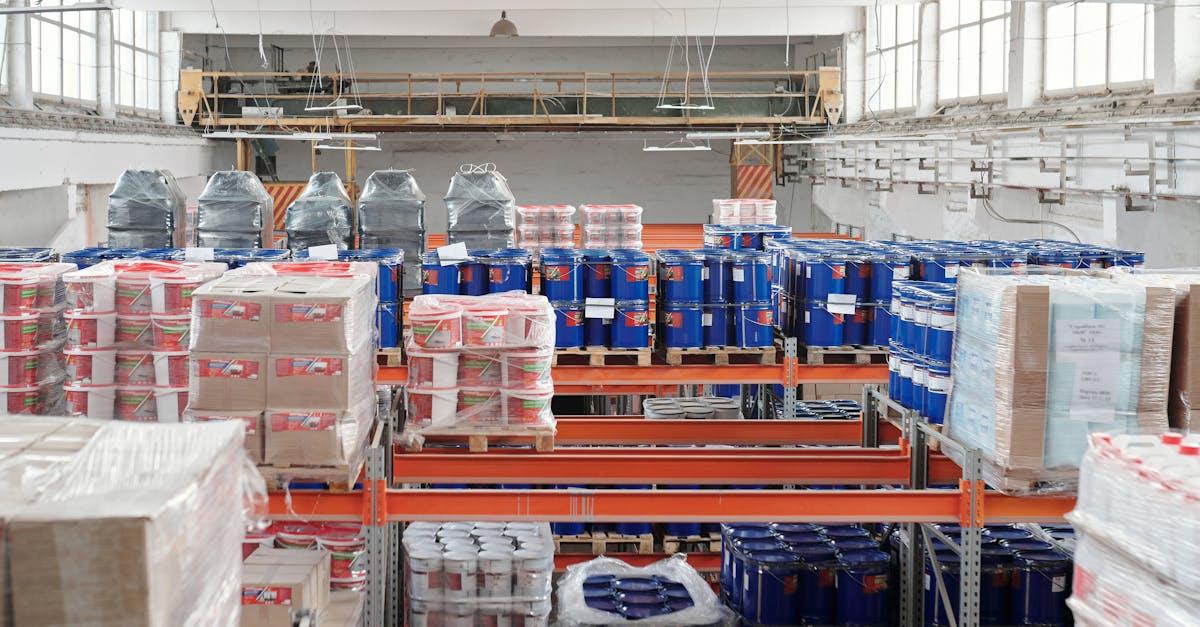
10 best practices for effective order fulfilment
Efficient packing is vital to ensure that products reach customers in pristine condition. Choose appropriate packaging materials that provide adequate protection, such as bubble wrap, biodegradable packing peanuts, or custom-sized boxes. This not onl...
Read more →
Historical developments in cold chain logistics
The pharmaceutical industry has been a significant driver of advancements in cold chain logistics. The need for stringent temperature control is paramount to ensure the efficacy and safety of vaccines, biologics, and other temperature-sensitive produ...
Read more →
Why proper inventory management impacts overall efficiency
The landscape of inventory management has seen remarkable transformations in recent years due to the integration of advanced technologies. Automated systems now enable real-time tracking of stock levels, order processing, and inventory turnover, sign...
Read more →
Why cold chain logistics is crucial for perishable goods
Ensuring the safe transport of perishable goods requires adherence to various regulations and standards. Government bodies across the globe have set frameworks aimed at maintaining the integrity of the cold chain. These guidelines not only dictate te...
Read more →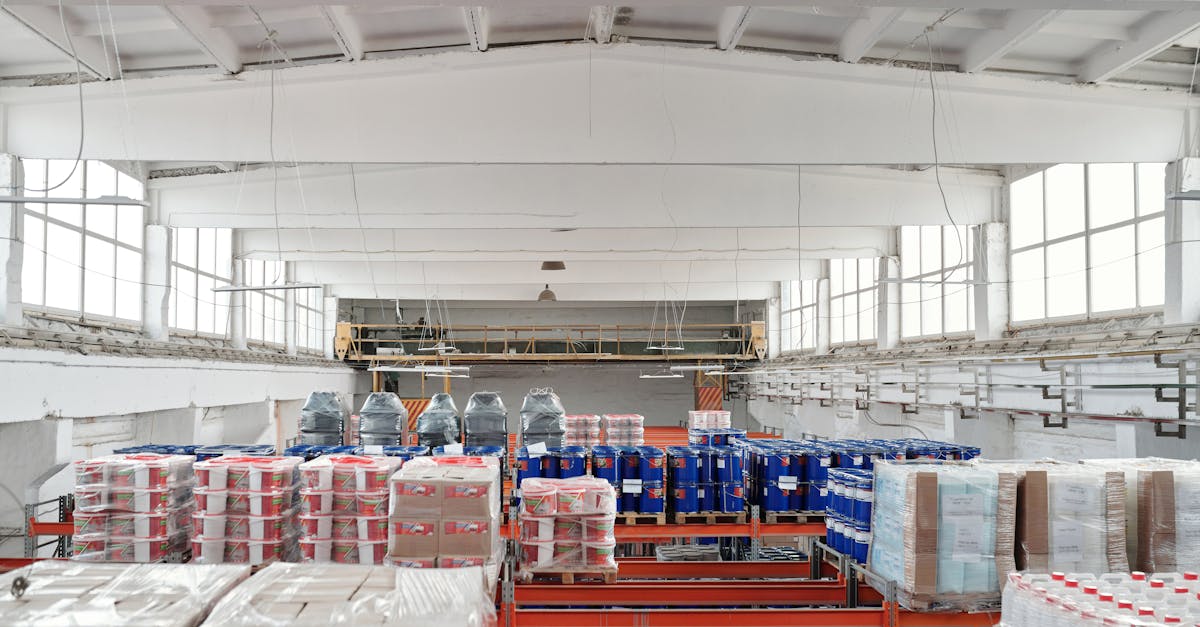
What to know about automated warehousing systems
As businesses grow, there is an increasing need for systems that can expand alongside them. Automated warehousing systems offer remarkable scalability by allowing companies to adjust their operational capacities without significant alterations to the...
Read more →
What to consider in distribution centre design
When designing a distribution centre, it is essential to anticipate future growth and scalability. As businesses expand, the distribution centre must adapt to increasing volumes of inventory and varying product lines. This consideration impacts the o...
Read more →
How to improve order fulfilment processes
Investing in staff training significantly enhances the efficiency of order fulfilment processes. Adequate training ensures that employees are well-versed in the latest systems and technologies, which leads to quicker processing times and reduced erro...
Read more →
How to optimise inventory management in warehouse operations
Establishing appropriate reorder levels is essential for effective inventory management. This metric ensures that stock is replenished before it runs out, thereby minimising the risk of stockouts that could disrupt operations. To determine these leve...
Read more →
Roundup of Innovations in Automated Warehousing
Advancements in artificial intelligence and machine learning will increasingly shape the landscape of warehousing. Automated systems will become more intelligent, enabling real-time decision-making and greater efficiency in operations. With the devel...
Read more →
Review of the Top Automated Warehousing Solutions in the Market
Several companies have adopted automated warehousing solutions with remarkable results. For instance, a leading UK retailer implemented a robotic picking system to enhance efficiency in its distribution centres. The integration of autonomous mobile r...
Read more →
7 Benefits of Automated Warehousing Systems
Automated warehousing systems optimise storage configurations, allowing businesses to use their available space more efficiently. These systems incorporate vertical storage solutions and compact shelving, significantly expanding storage capacity. As ...
Read more →
History of Automated Warehousing Systems
Artificial intelligence plays a pivotal role in transforming automated warehousing systems. By leveraging machine learning algorithms, these systems can analyse vast amounts of data to optimise operations. AI-driven tools can predict demand patterns,...
Read more →
Why You Should Invest in Automated Warehousing Technology
The integration of automated warehousing technology significantly enhances the safety of employees working in logistics environments. By deploying machines and robots to handle heavy lifting, the risk of injuries associated with manual handling is gr...
Read more →
Why Automated Warehousing is Essential for Modern Logistics
Automated warehousing solutions offer remarkable scalability, allowing businesses to expand their operations swiftly in response to fluctuating demand. This adaptability is crucial in the fast-paced logistics sector, where companies often face season...
Read more →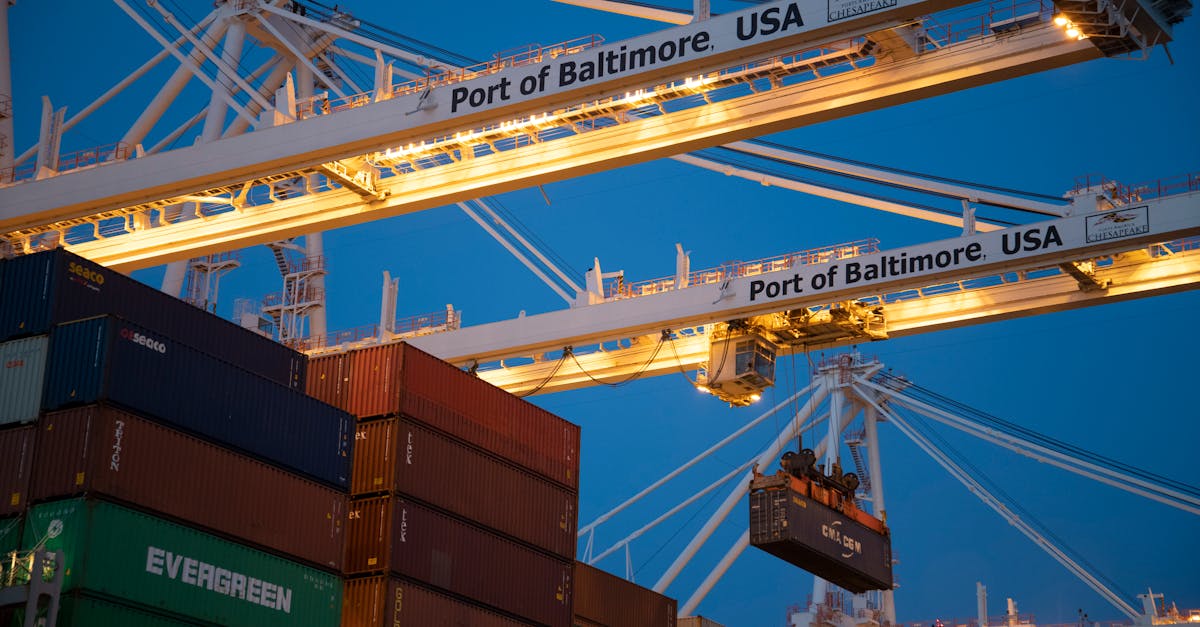
What to Consider When Designing an Automated Warehouse
The implementation of automation in warehouse environments necessitates a thorough assessment of safety risks associated with advanced machinery and technology. Employees must be shielded from potential hazards like moving equipment, hazardous materi...
Read more →
What are Automated Warehousing Systems
As global commerce evolves, the demand for increased efficiency and accuracy in warehousing operations is compelling companies to explore more advanced automated systems. One notable trend is the integration of robotics with traditional warehousing p...
Read more →
How to Choose the Right Automated Solutions for Your Warehouse
A user-friendly interface is crucial for ensuring that warehouse staff can operate automated solutions efficiently. These interfaces should be intuitive and straightforward to navigate, allowing employees to quickly learn the system without extensive...
Read more →
How to Implement Automated Warehousing Systems for Efficiency
Effective training is essential when transitioning to automated warehousing systems. Employees must familiarise themselves with new technologies, which may significantly differ from traditional processes. Comprehensive training sessions should be org...
Read more →
Roundup of Top Distribution Centre Design Innovations
The design of workspaces within distribution centres has evolved significantly to prioritise employee comfort and efficiency. Ergonomic considerations play a crucial role in reducing the risk of musculoskeletal disorders. Adjustable desks and special...
Read more →
Review of the Latest Distribution Centre Design Software
The decision to invest in distribution centre design software often hinges on several cost factors, including initial purchase price, ongoing maintenance, and potential scalability. While some platforms offer a one-time fee structure, others operate ...
Read more →
7 Key Features of an Efficient Distribution Centre
Implementing sustainable practices in operations requires an integration of eco-friendly methodologies throughout the distribution centre. This includes utilising renewable energy sources, such as solar panels, to power facilities. Energy-efficient l...
Read more →
A Historical Overview of Distribution Centre Design Trends
The location of a distribution centre plays a pivotal role in determining its efficiency and effectiveness. Proximity to major transportation networks, such as roads, railroads, and airports, can significantly reduce distribution costs and improve de...
Read more →
Why You Should Consider Automated Solutions in Your Distribution Centre
The landscape of distribution automation is evolving rapidly, driven by advancements in technology that enhance operational efficiency and accuracy. Robotics and artificial intelligence are at the forefront, streamlining processes from picking to pac...
Read more →
What to Include in Your Distribution Centre Design Checklist
Creating an efficient employee workflow begins with understanding the movement patterns and tasks that workers undertake daily. Observations and data analysis can reveal bottlenecks or inefficient processes in material handling and task performance. ...
Read more →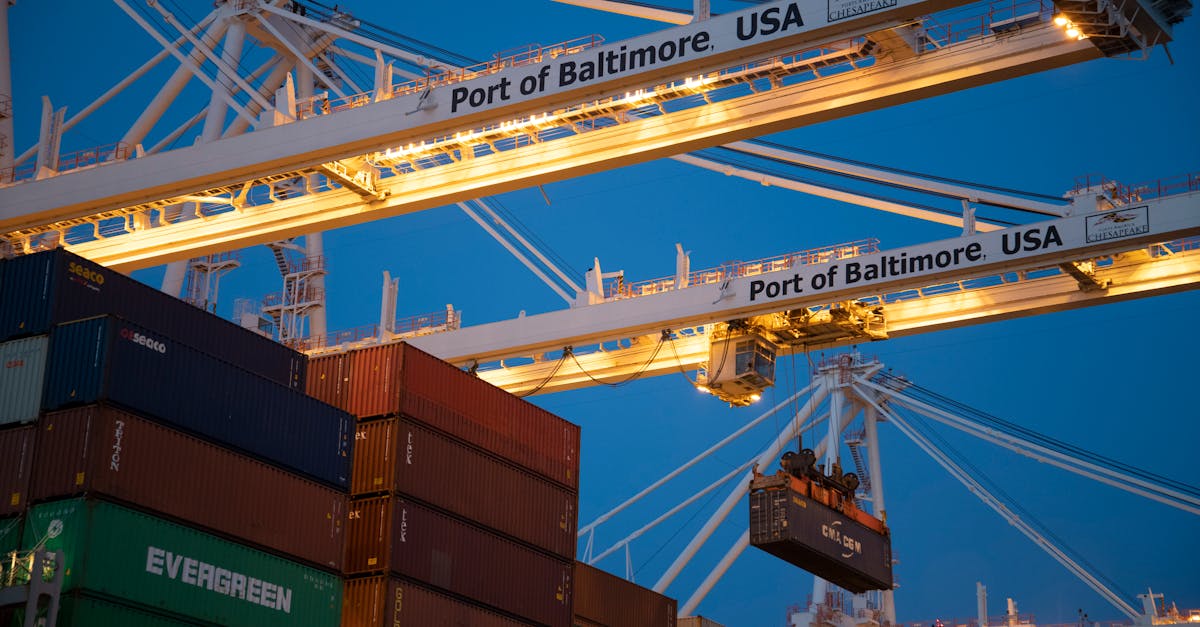
Why Effective Distribution Centre Design is Crucial for Business Success
Inefficient distribution centre design can lead to significantly increased operational costs. When layouts are poorly planned, tasks often become more complex, requiring additional time and labour to complete basic processes. This inefficiency may re...
Read more →
What to Consider When Designing a Distribution Centre
The well-being of employees plays a vital role in the efficiency of a distribution centre. Designing spaces that prioritise comfort and accessibility can significantly enhance worker satisfaction and productivity. Factors such as ergonomic workstatio...
Read more →
How to Implement Best Practices in Distribution Centre Operations
Employee safety remains a top priority in distribution centres. Implementing comprehensive safety protocols can significantly reduce workplace accidents. Regular training sessions help enhance employee awareness of potential hazards. Personal protect...
Read more →
How to Optimise Distribution Centre Design for Efficiency
Effective inventory management is crucial for maintaining streamlined operations within a distribution centre. Adopting strategies such as just-in-time (JIT) inventory allows for reduced holding costs and improved response times. This approach encour...
Read more →
Roundup of Top Trends in Order Fulfilment for 2024
As consumers increasingly expect convenience and flexibility, retailers are adapting their fulfilment strategies to offer seamless experiences across multiple channels. The rise of online shopping has prompted many businesses to integrate physical st...
Read more →
Review of the Best Order Fulfilment Services in 2023
A strong emphasis on customer satisfaction has become a cornerstone for successful order fulfilment services. Companies that prioritise client needs often ensure prompt responses to inquiries and resolve issues efficiently. This approach fosters trus...
Read more →
10 Tips for Improving Your Order Fulfilment Operation
Establishing clear and achievable order processing times is crucial for maintaining customer satisfaction and operational efficiency. Understanding the various factors that can impact processing times, such as product availability, order complexity, ...
Read more →
History of Order Fulfilment in the Retail Industry
The transformation of retail has been significantly influenced by the increasing interconnectedness of global markets. Retailers have expanded their operations beyond domestic borders to tap into new customer bases and streamline sourcing strategies....
Read more →
Why Order Fulfilment is Crucial for Customer Satisfaction
The landscape of order fulfilment has been transformed by advancements in technology. Companies increasingly leverage artificial intelligence and machine learning algorithms to streamline their operations. These innovations enhance inventory manageme...
Read more →
Why Automation is Transforming Order Fulfilment
Artificial Intelligence (AI) has emerged as a pivotal component in optimising order fulfilment processes. Through machine learning algorithms, businesses can analyse vast amounts of data and identify patterns that would be difficult to discern manual...
Read more →
What to Consider When Selecting Order Fulfilment Software
When exploring options for order fulfilment software, it's essential to analyse the pricing structure thoroughly. Many providers offer tiered pricing plans based on the volume of orders processed, which can cater to businesses of different sizes. Som...
Read more →
What to Know About Same-Day Delivery Services
A number of providers dominate the same-day delivery market, each offering unique features and strengths. Services such as Amazon Prime Now, Deliveroo, and Postmates have gained popularity for their extensive networks and prompt delivery times. Amazo...
Read more →
How to Implement Efficient Picking Strategies
The integration of a real-time inventory system can significantly enhance the efficiency of warehouse operations. By utilising technology to track stock levels, businesses can reduce the likelihood of overstocking or stockouts. RFID tags and barcode ...
Read more →
How to Optimise Order Fulfilment Processes
Training staff effectively is essential for enhancing their performance in order fulfilment processes. Comprehensive onboarding programmes should introduce employees to all operational procedures, ensuring they understand their roles and responsibili...
Read more →
Roundup of innovative trends in warehouse operations
The modern warehouse landscape demands adaptability in its design to accommodate fluctuating inventory levels and shifting consumer preferences. Innovative layouts, including moveable shelving and modular racking systems, allow operators to modify th...
Read more →
Review of top automated warehousing systems on the market
In assessing the effectiveness of automated warehousing systems, user experience plays a critical role. Many users have expressed appreciation for intuitive interfaces that streamline operations. Feedback often highlights the ease of navigating the s...
Read more →
7 best practices for efficient order fulfilment
Incorporating automation into order fulfilment processes can enhance efficiency and accuracy. Automation tools can manage inventory levels, streamline packing operations, and facilitate order processing. By reducing manual intervention, businesses ca...
Read more →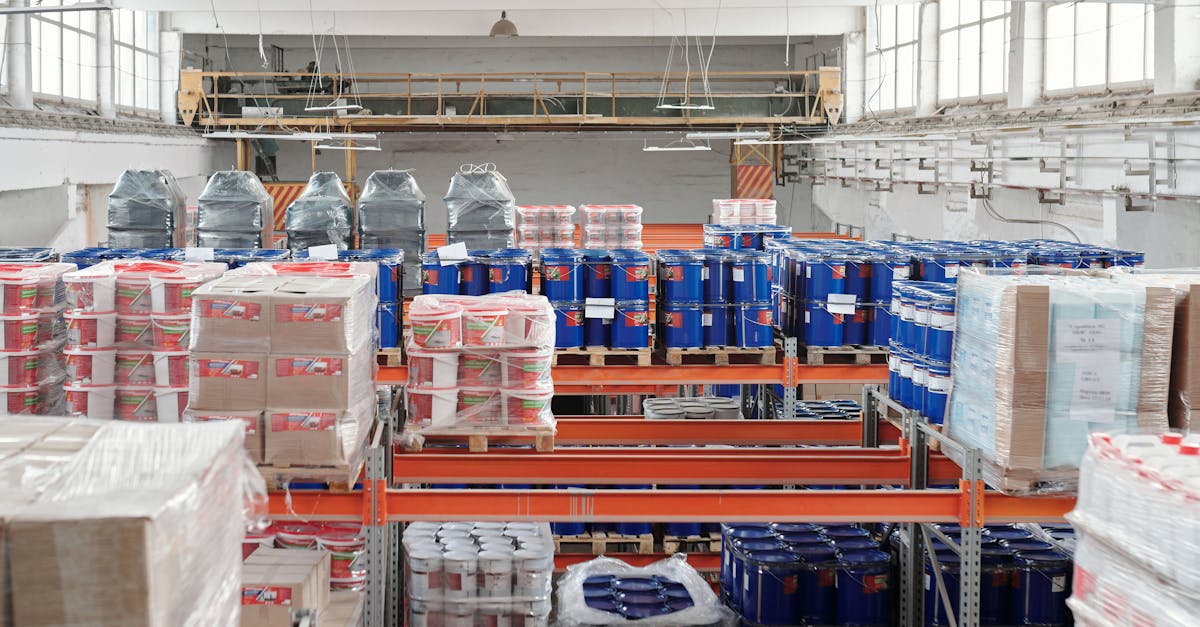
History of inventory management techniques
The landscape of inventory management has witnessed significant transformations with the advent of software developments. Early systems primarily focused on manual data entry and simple spreadsheets, limiting efficiency and real-time tracking capabil...
Read more →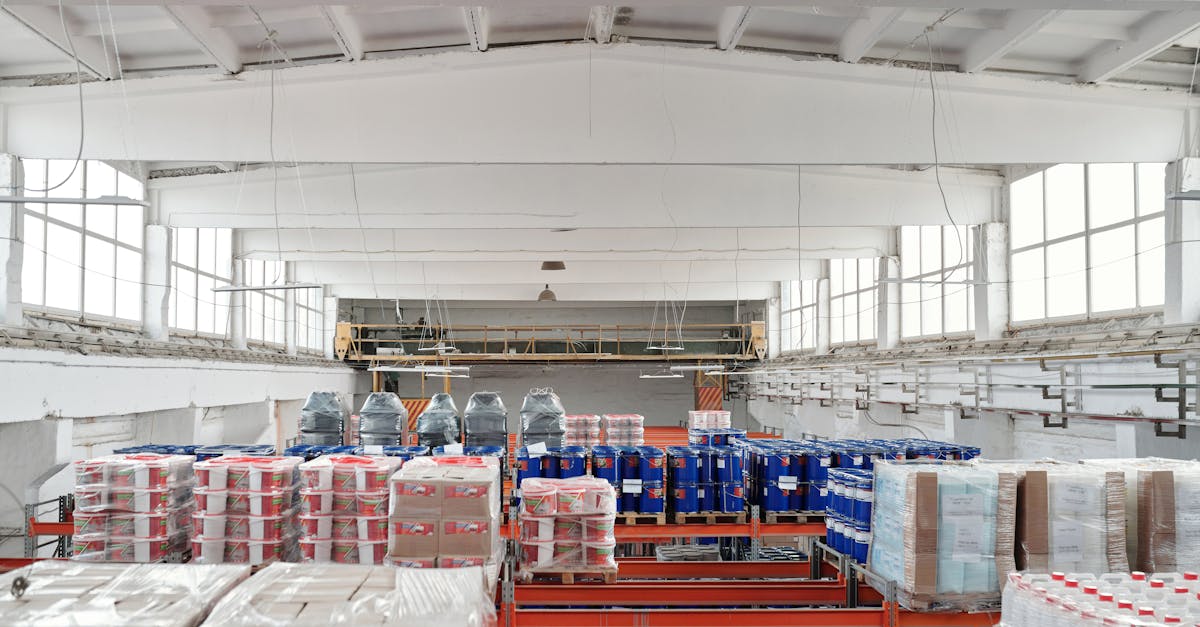
Why cold chain logistics is critical for perishable goods
The evolution of cold chain logistics has been significantly enhanced by recent technological advancements. Innovations such as smart sensors and IoT devices have transformed temperature monitoring capabilities, allowing for real-time data tracking d...
Read more →
Why automated warehousing systems are essential for modern logistics
The implementation of real-time data and analytics in automated warehousing significantly enhances operational efficiency. By continuously monitoring inventory levels and picking processes, businesses can optimise their workflows and reduce delays. D...
Read more →
What to consider when designing a distribution centre
Safety is paramount in any distribution centre. Adhering to health and safety regulations protects employees and assets. Compliance with local and national standards involves regular audits and inspections. Training staff on safety procedures and pro...
Read more →
What is inventory management and why is it important
Inventory management often poses considerable challenges that can hinder a business's efficiency and profitability. One significant obstacle is maintaining an accurate record of stock levels. Discrepancies can arise from various factors such as human...
Read more →
How to optimise inventory management in warehouses
Reorder points are essential in maintaining optimal inventory levels. They indicate the moment inventory should be replenished to prevent stockouts while minimising excess stock. Establishing these points requires a thorough analysis of sales pattern...
Read more →
How to implement an effective order fulfilment strategy
An effective order processing system is crucial for maintaining customer satisfaction and operational efficiency. Integrating a robust software solution can streamline workflows, minimise human error and ensure that orders are processed in a timely m...
Read more →
Roundup of Key International Shipping Regulations
The maritime industry faces various threats, making security measures a crucial aspect of operations. With increasing global trade, the risk of terrorism, smuggling, and piracy has heightened, necessitating comprehensive protocols to ensure the safet...
Read more →
Review of the Latest Trends in Freight Forwarding
The logistics industry has witnessed a transformative shift with the emergence of digital freight platforms. These online solutions streamline the processes involved in booking shipments, managing logistics, and communicating with carriers. They offe...
Read more →
The History of International Shipping Regulations
The maritime industry has faced increasing scrutiny regarding its environmental impact over recent decades. Regulations have been implemented to mitigate pollution from ships, focusing primarily on reducing emissions and waste. These measures stem fr...
Read more →
10 Tips for Effective Freight Forwarding Practices
The advancement of technology has revolutionised the freight forwarding industry, making it essential for businesses to incorporate modern software solutions into their operations. Automated platforms streamline various processes, from inventory mana...
Read more →
Why Customs Clearance Procedures Matter
Proper documentation lays the groundwork for efficient customs clearance. Accurate invoices, packing lists, and bills of lading are essential for verifying the contents of a shipment. These documents should detail the specifics of the goods being tra...
Read more →
Why Understanding Modes of Transport in Freight Forwarding is Essential
Regulatory compliance plays a crucial role in the efficiency of transport logistics. Freight forwarders must navigate a complex landscape of international and national regulations, ensuring that every shipment adheres to the laws governing customs, s...
Read more →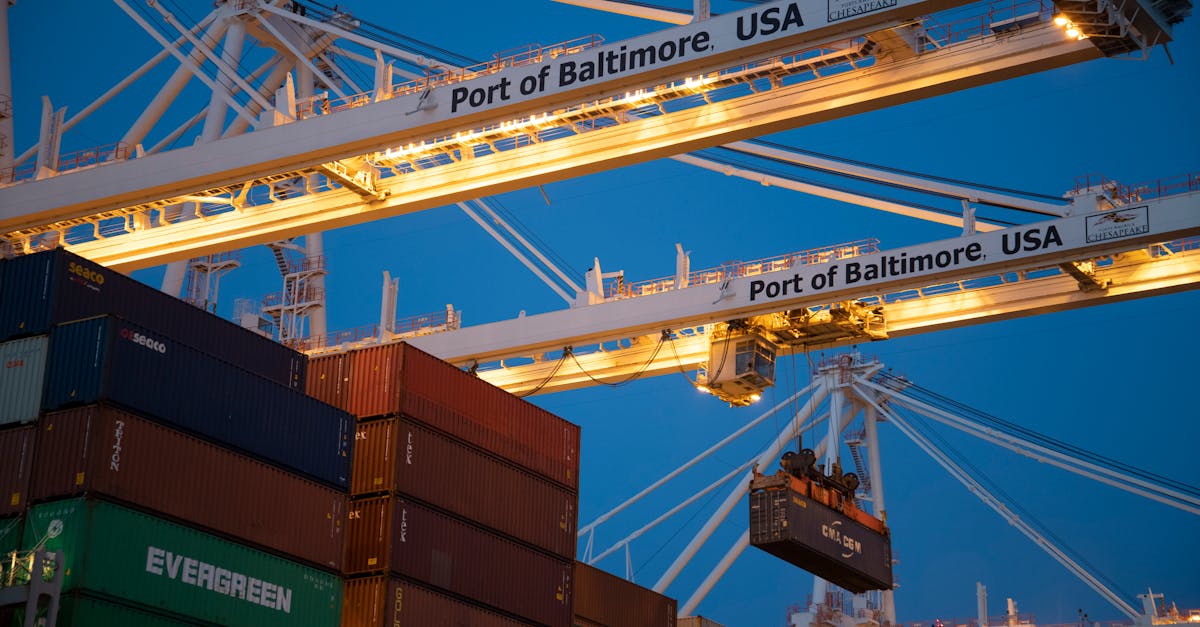
What to Consider for Risk Management in Freight Forwarding
Choosing a freight forwarder is a critical decision that can significantly impact supply chain efficiency. The right partner should possess extensive experience in logistics, particularly in the regions relevant to your business. It's essential to ev...
Read more →
What to Know About Freight Forwarding Documentation
The Certificate of Origin plays a crucial role in international trade by verifying the origin of goods being exported. This document confirms that the products come from a specific country, which is essential for customs clearance and trade negotiati...
Read more →
How to Navigate International Shipping Regulations
Selecting an appropriate shipping method is crucial for ensuring that goods arrive on time and in good condition. Different options, such as air, sea, and land transport, come with their own advantages and limitations. Air freight is typically the fa...
Read more →
How to Prepare Customs Clearance Documentation
Export licences are essential documents necessary for the shipment of certain goods internationally. Different countries have distinct regulations regarding which items require such permits. Commonly, controlled goods include military equipment, dual...
Read more →
Roundup of Recent Changes in International Shipping Regulations
Recent developments in international shipping have focused significantly on enhancing safety protocols. Regulatory bodies have mandated stricter compliance with safety management systems on board vessels. These systems encompass various aspects, incl...
Read more →
Review of the Best Freight Forwarding Software
The ability to integrate freight forwarding software with existing systems is crucial for streamlining operations within logistics companies. Businesses benefit significantly from software that connects seamlessly with Enterprise Resource Planning (E...
Read more →
10 Key Challenges in Freight Forwarding
The freight forwarding industry is experiencing rapid technological transformation. Automation, artificial intelligence, and blockchain technology are reshaping operations, enhancing efficiency, and enabling companies to respond swiftly to market dem...
Read more →
Historical Overview of Freight Forwarding Practices
The 20th century marked a significant transformation in freight forwarding practices, largely driven by a series of regulatory changes that reshaped the industry. The onset of the century brought with it increased industrialisation and global trade, ...
Read more →
Why Risk Assessment is Essential in Freight Forwarding
Creating a comprehensive risk assessment framework is vital for identifying potential threats and challenges in freight forwarding. This framework should encompass various dimensions, such as regulatory compliance, operational processes, and environm...
Read more →
Why Understanding Modes of Transport is Crucial in Freight Forwarding
In freight forwarding, risk management plays a vital role in ensuring the seamless movement of goods. Stakeholders must identify potential threats such as delays, damage, and regulatory compliance issues. By recognising these risks early, businesses ...
Read more →
What to Consider for Risk Management in Freight Forwarding
The incorporation of technology in freight forwarding has become increasingly crucial for effective risk management. Advanced software solutions can enhance visibility throughout the supply chain, allowing companies to identify potential hazards in r...
Read more →
What to Include in Freight Forwarding Documentation
Customs declaration forms are crucial in the freight forwarding process. These documents provide customs authorities with necessary information regarding the goods being imported or exported. Accurate and detailed declarations help streamline the cus...
Read more →
How to Ensure Smooth Customs Clearance
Delays during customs clearance can arise from a variety of factors. One prevalent issue is incomplete or incorrect documentation. Missing information or errors in invoices and shipping manifests can lead to significant hold-ups. Customs authorities ...
Read more →
How to Navigate International Shipping Regulations
When preparing goods for international transport, understanding local packaging regulations is essential. Different countries have varying standards, which may dictate the materials used, the strength required for cartons, and the need for protective...
Read more →
Roundup of Best Practices in Freight Forwarding
Advancements in technology and automation are reshaping the landscape of freight forwarding, streamlining operations and enhancing efficiency. Companies are integrating sophisticated software solutions that facilitate real-time tracking, inventory ma...
Read more →
10 Essential Documents for Freight Forwarding
The transport of hazardous materials requires stringent adherence to safety regulations. A Dangerous Goods Declaration (DGD) serves as a formal document that provides crucial information regarding the nature of the goods being shipped. This document ...
Read more →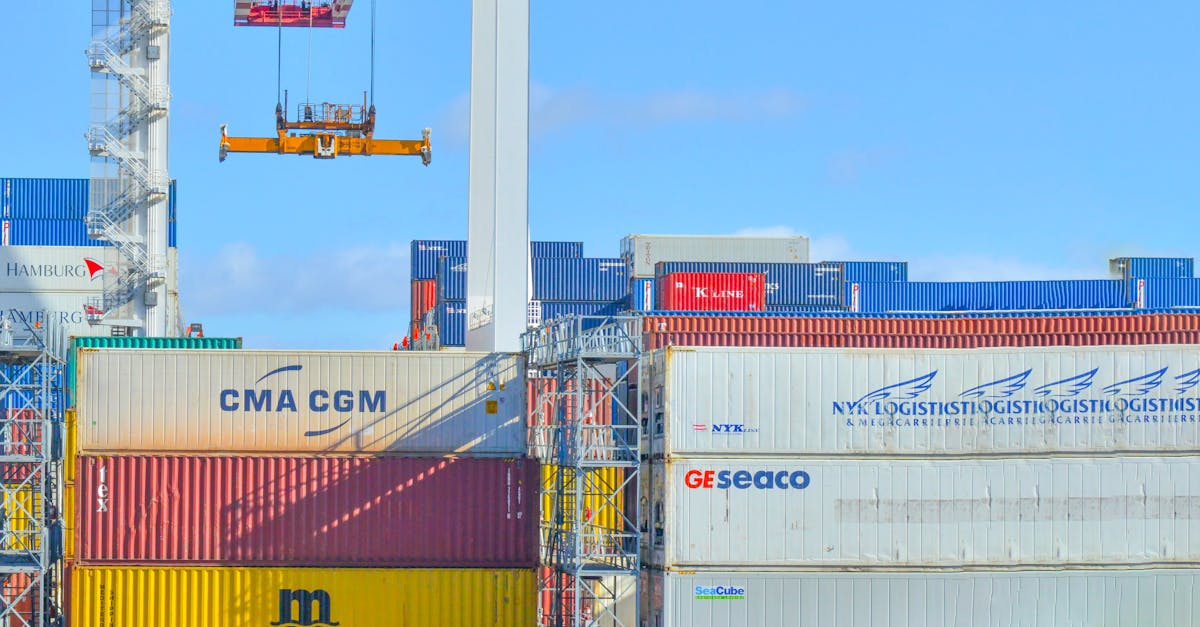
Review of Top Freight Forwarding Software
When selecting freight forwarding software, financial implications play a critical role. Initial costs may include not only the software licensing but also any necessary hardware upgrades and training for staff. Ongoing expenses typically involve sub...
Read more →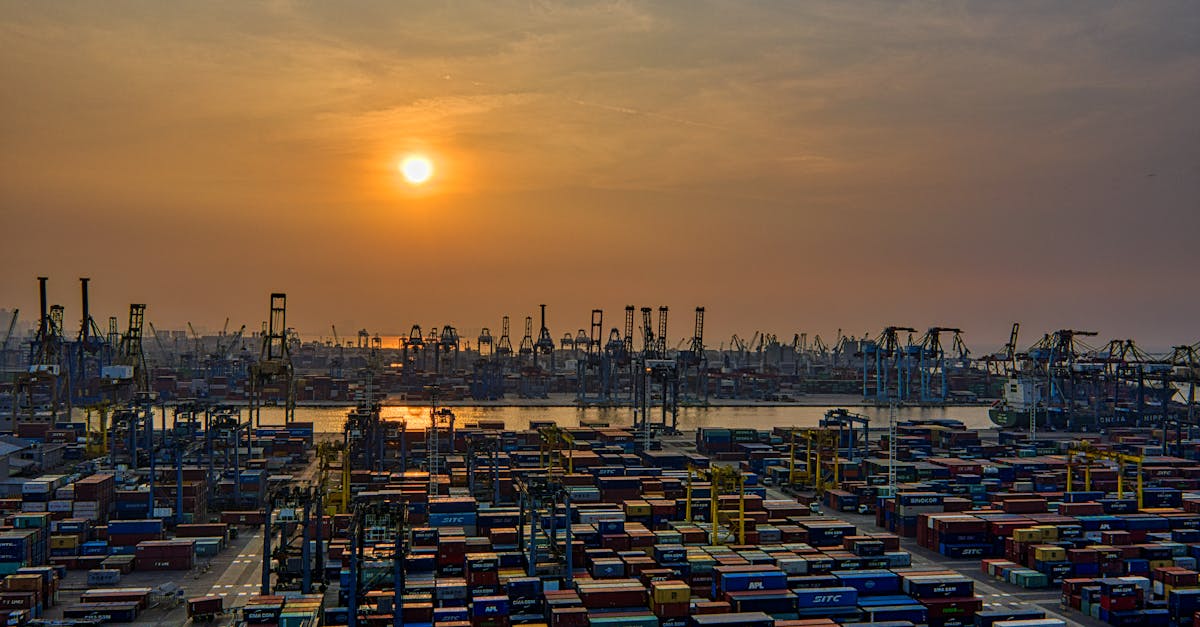
A Historical Overview of Freight Forwarding Practices
The transformation of freight forwarding was significantly influenced by advancements in technology. Modern logistics began to incorporate electronic communication, facilitating more efficient interactions among shippers, carriers, and receivers. Thi...
Read more →
Why Understanding Modes of Transport in Freight Forwarding is Crucial
Freight forwarding involves navigating a complex landscape of regulations that govern various transport modes. Each mode, whether it be road, rail, sea, or air, comes with its own set of legal obligations. Compliance with international, national, and...
Read more →
Why Freight Forwarding Documentation Matters
Freight forwarding documentation involves various complexities that can pose significant challenges. The rapidly evolving global trade environment introduces various regulations, which differ greatly from one country to another. This inconsistency re...
Read more →
What to Know About Risk Management in Freight Forwarding
A robust risk management strategy is fundamental for any freight forwarding business aiming to navigate the complexities of logistics and supply chain management. Identifying potential risks early is crucial, as it allows organisations to implement p...
Read more →
What to Include in Customs Clearance Procedures
Proper packaging is essential for ensuring that goods remain secure and undamaged during transit. This protection not only preserves the contents but also aids in meeting the necessary regulatory requirements of customs. Materials used for packaging ...
Read more →
How to Prepare Freight Forwarding Documentation
An air waybill serves as a crucial document in the freight forwarding industry, particularly for air cargo. It acts as a contract between the shipper and the airline, detailing the terms and conditions of transportation. This document contains essent...
Read more →
How to Navigate International Shipping Regulations
Engaging in international shipping requires a comprehensive understanding of the necessary licensing and permits relevant to your specific industry and destination. Various countries impose different regulations depending on the type of goods being t...
Read more →
Roundup of the Latest Changes in International Shipping Regulations
The maritime industry is undergoing significant changes as companies embrace digital solutions to optimise their operations. Emerging technologies such as blockchain and artificial intelligence are facilitating enhanced tracking and visibility of car...
Read more →
Review of the Best Practices in Risk Management for Freight Forwarding
Understanding the legal and regulatory environment is crucial for freight forwarding businesses. Compliance with international, national, and local laws governs the operations of logistics companies. These regulations can include customs laws, trade ...
Read more →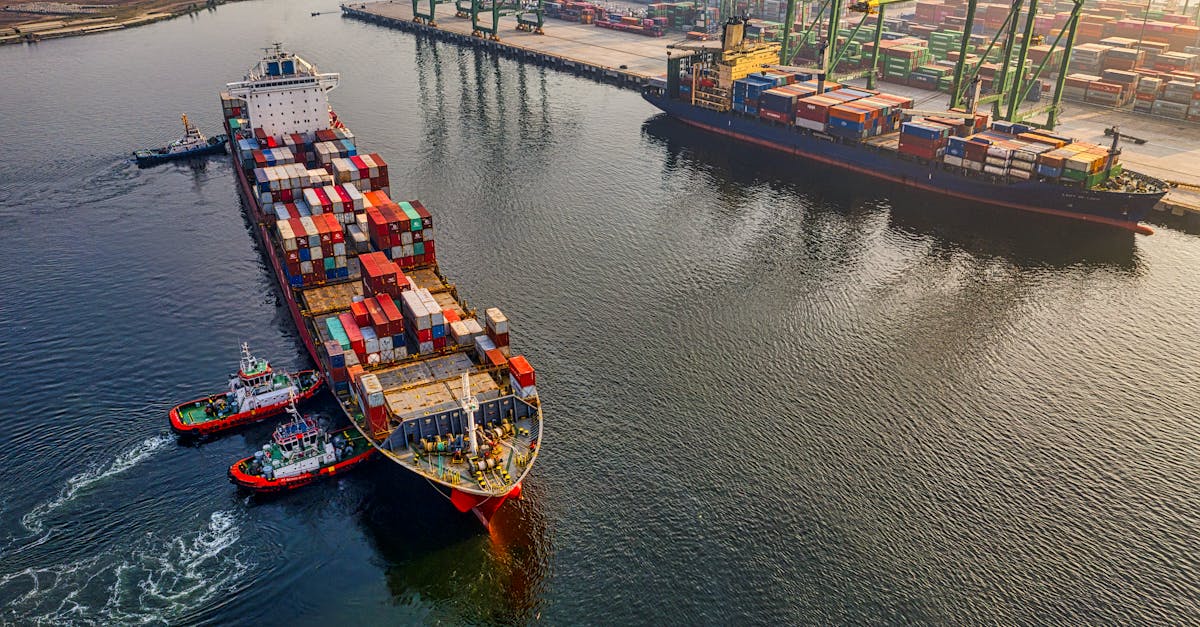
10 Essential Documents for Freight Forwarding
An export declaration is a critical document required for the shipment of goods across international borders. It serves as a formal notice to the authorities about the nature and value of the goods being exported. Various details must be included, su...
Read more →
Historical Overview of Customs Regulations in Freight Forwarding
Customs brokers serve as essential intermediaries in the freight forwarding process, facilitating the smooth movement of goods across international borders. Their expertise allows businesses to navigate complex regulatory requirements. Brokers ensure...
Read more →
Why Understanding Modes of Transport in Freight Forwarding is Crucial
Air transport stands out for its unparalleled speed, making it the go-to option for businesses that require swift delivery of goods. Its efficiency is particularly valuable for time-sensitive products such as electronics, perishables, and medical sup...
Read more →
Why Customs Clearance is Essential for International Shipping
Accurate valuation is crucial in international shipping as it directly affects the duties and taxes that the importer is required to pay. If goods are undervalued, the customs authorities may suspect fraud, leading to fines, penalties, or even shipme...
Read more →
What to Know About Risk Management in Freight Forwarding
The incorporation of technology in the freight forwarding sector significantly transforms risk management practices. Advanced analytics and data processing tools enable companies to identify potential risks before they escalate. Real-time tracking sy...
Read more →
What to Include in Freight Forwarding Documentation
Navigating the customs declaration process is crucial for the smooth transit of goods across borders. This process involves submitting specific documents that provide detailed information about the shipment. Customs authorities require this informati...
Read more →
How to Prepare for Customs Clearance Procedures
A thorough preparation for customs inspections can significantly ease the process. It is crucial to have all relevant documentation in order. This includes invoices, packing lists, and any necessary certificates. Organising these documents ensures th...
Read more →
Roundup of Top Freight Forwarding Companies
In recent years, the freight forwarding industry has seen significant advancements driven by technology and evolving market needs. Automation has become a core focus for many companies, enabling them to streamline processes and reduce human error. Ad...
Read more →
How to Navigate International Shipping Regulations
Understanding which items are restricted or prohibited in international shipping is crucial for compliance. Many countries enforce strict regulations on certain goods, including weapons, narcotics, and live animals. Failing to adhere to these restric...
Read more →
10 Essential Documents for Freight Forwarding
This document serves as a declaration from the exporter, certifying the country of origin of the goods being shipped. It often accompanies international trade transactions to ascertain where the products were manufactured or produced. Customs authori...
Read more →
Review of the Best Freight Forwarding Software
A variety of pricing structures exist among freight forwarding software options, catering to different business needs and budgets. Some providers offer subscription models based on usage levels, while others may adopt a tiered approach, granting user...
Read more →
Historical Overview of Freight Forwarding
The emergence of globalisation has dramatically transformed the landscape of trade and logistics. As barriers between countries continue to diminish, businesses now operate in a more interconnected world. This shift has led to an increased urgency fo...
Read more →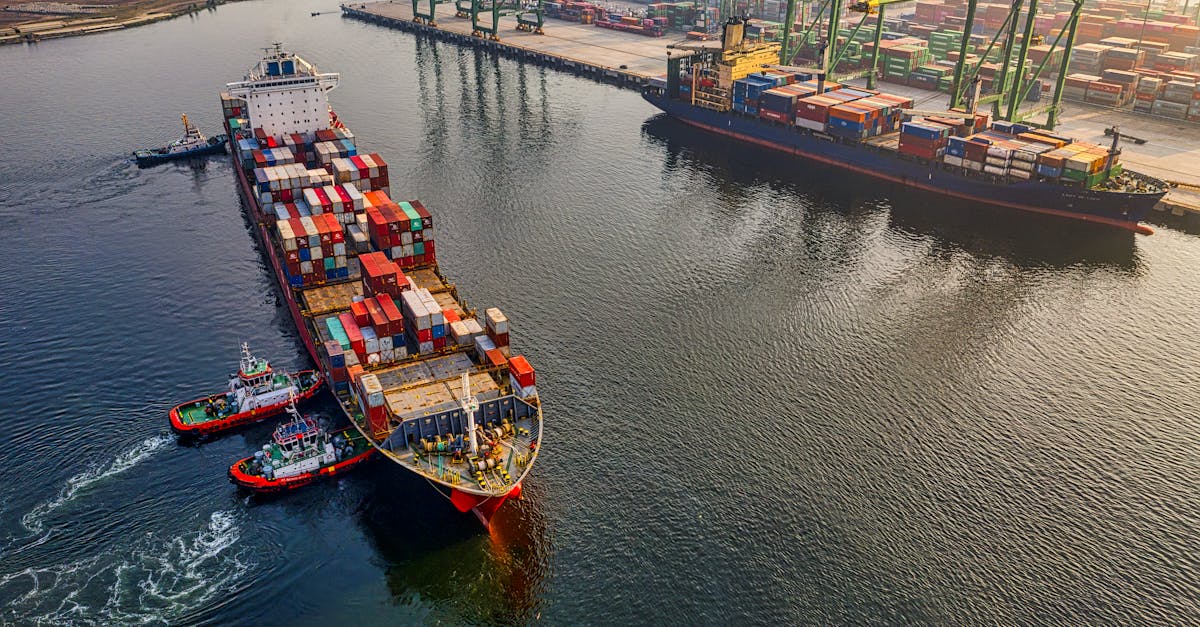
Why Customs Clearance Can Delay Shipments
Certain goods are subject to strict regulations that may lead to significant delays in the customs clearance process. Items classified as restricted can include specific chemicals, wildlife products, or electronics with certain features that require ...
Read more →
Why International Shipping Regulations Are Important
In the realm of international trade, regulations play a crucial role in ensuring that all players operate on a level playing field. By establishing clear rules of engagement, these regulations help to mitigate unfair practices that some businesses mi...
Read more →
What to Know About Risk Management in Freight Forwarding
Freight forwarding involves various inherent risks that can significantly impact operations. Effective risk mitigation techniques are essential to safeguard goods while in transit. One vital approach is to ensure proper insurance coverage. This prote...
Read more →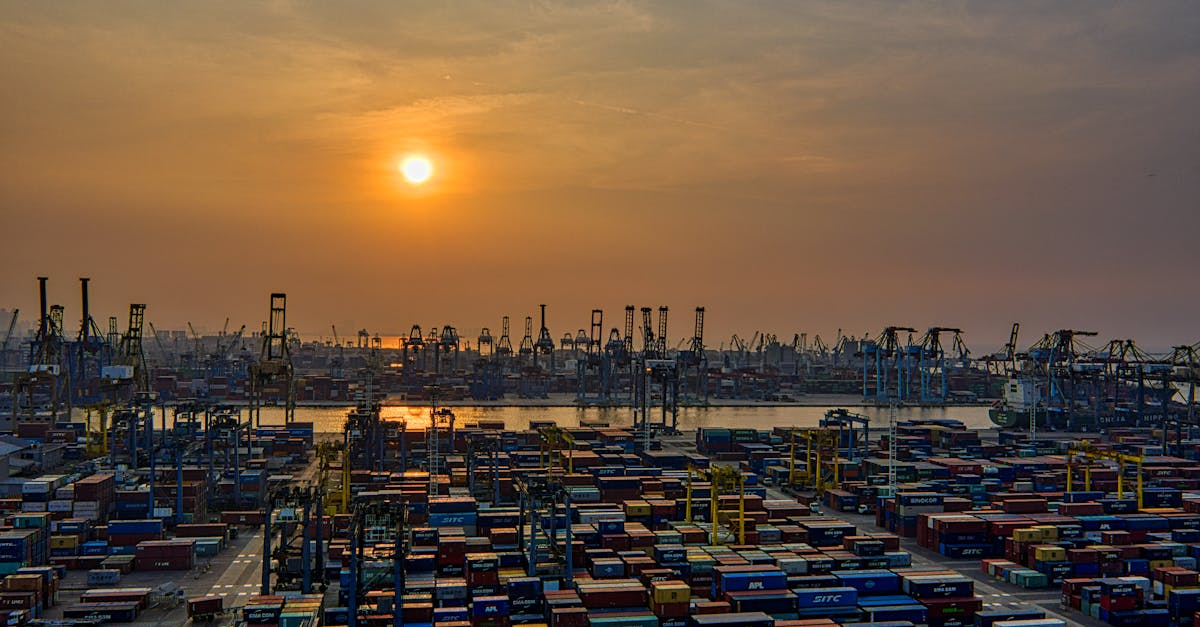
What to Include in Freight Forwarding Documentation
Certificates play a crucial role in the freight forwarding process, serving as essential documents that provide verification and validation of various processes and conditions associated with the shipment. These documents are often required to meet i...
Read more →
How to Prepare for Customs Clearance Procedures
Customs inspections play a crucial role in the import and export process. Businesses should ensure all documentation is accurate and readily available, as discrepancies can lead to delays or penalties. It is beneficial to maintain a well-organised fi...
Read more →
How to Navigate International Shipping Regulations
International shipping involves compliance with various regulations that restrict the movement of certain goods across borders. Different countries implement these restrictions based on health, safety, and environmental concerns. Items such as firear...
Read more →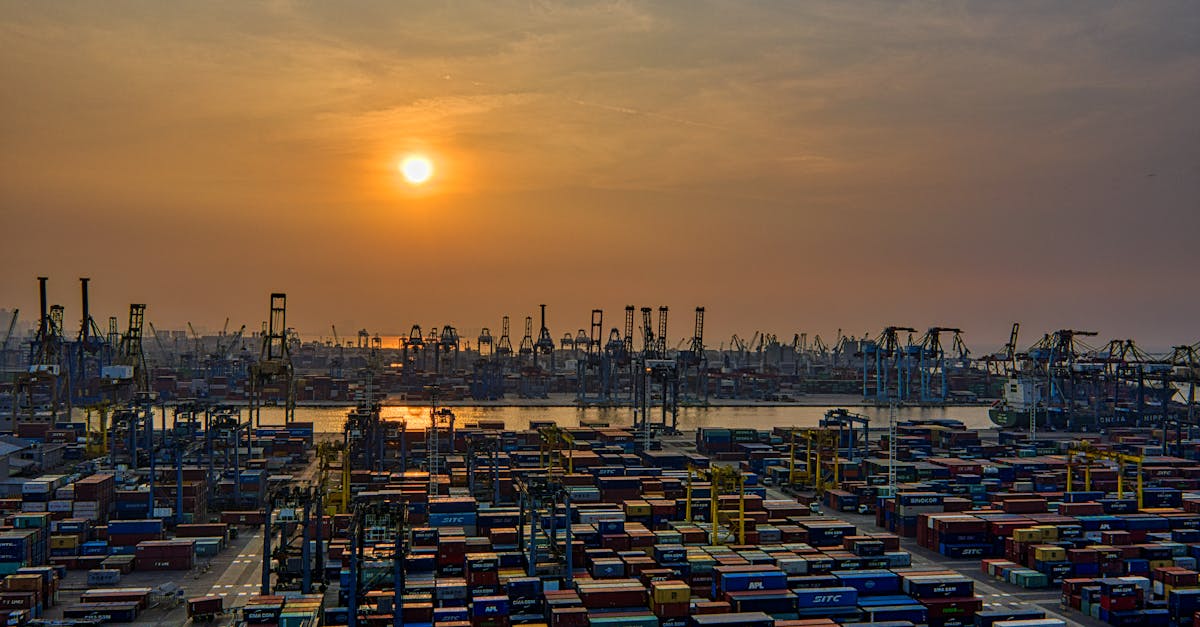
Roundup of best practices for logistics performance evaluation
Evaluating logistics performance against established industry benchmarks provides valuable insights into operational effectiveness. It enables companies to identify areas of strength and weakness. By comparing metrics such as delivery times, costs, a...
Read more →
Review of top logistics performance measurement tools
The logistics performance software in question is renowned for its robust features tailored to enhance supply chain operations. With a user-friendly interface, businesses can easily navigate its functionalities, enabling rapid access to vital metrics...
Read more →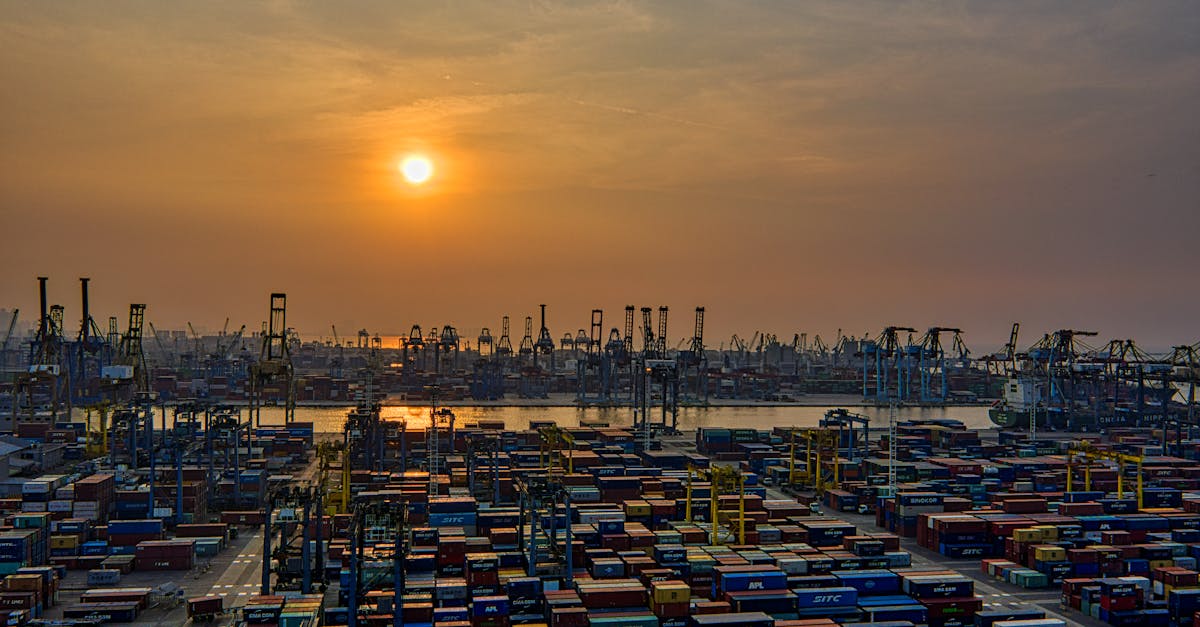
7 essential metrics for logistics performance measurement
Warehouse utilisation is a critical component of logistics performance measurement. It refers to the percentage of available storage space that is being effectively utilised. High utilisation rates indicate that the warehouse is operating efficiently...
Read more →
Why logistics performance measurement is crucial for success
In a landscape where businesses strive for operational excellence, logistics performance measurement emerges as a key differentiator. Companies that closely monitor their logistics metrics can identify inefficiencies and areas for improvement. This l...
Read more →
Historical evolution of logistics performance measurement
The logistics industry has increasingly recognised the importance of placing customers at the forefront of performance measurement. Traditional metrics, often centred around operational efficiency, have evolved to encompass dimensions such as custome...
Read more →
What to include in a logistics performance measurement framework
In an increasingly competitive environment, businesses are turning to technology as a vital component for measuring logistics performance. High-quality data collection tools and software facilitate the gathering of real-time information, enabling org...
Read more →
Why you need to regularly assess logistics performance
Strong supplier relationships contribute significantly to the efficiency of logistics operations. Engaging in regular assessments can help identify areas where suppliers excel and where improvements are necessary. This open dialogue fosters collabora...
Read more →
What to consider for effective logistics performance measurement
Effective logistics performance hinges on the skills and motivations of employees. Tailored training programs equip staff with the necessary tools to navigate complex logistics tasks. Investing in continuous education fosters a sense of competence an...
Read more →
How to implement key performance indicators in logistics
Before implementing key performance indicators (KPIs) in logistics, it is crucial to gather accurate and relevant data to establish baseline measurements. This initial step provides a reference point against which future performance can be assessed. ...
Read more →
How to optimise logistics performance measurement
Investing in employee training fosters a knowledgeable workforce adept at navigating the intricacies of logistics. Training programmes should focus on developing both technical skills and soft skills, enabling employees to handle various tasks effect...
Read more →
Roundup of Trends in Supplier Relationship Management
The landscape of supplier relationship management is increasingly shaped by data-driven decision-making processes. Organisations are harnessing vast amounts of data to uncover patterns and trends that inform their supplier strategies. This analytical...
Read more →
Review of the Top Supplier Relationship Management Tools
Tool 3 offers a comprehensive suite designed to enhance supplier relationship management, focusing on collaboration and efficiency. Its user interface is intuitive, making navigation easy for users at all levels. The software features advanced analyt...
Read more →
10 Best Practices for Supplier Relationship Management
Technology plays a pivotal role in enhancing supplier relationship management. Automation tools, data analytics, and specialised software can streamline communication and improve overall efficiency. These technologies enable businesses to track suppl...
Read more →
The Historical Evolution of Supplier Relationship Management
In the evolving landscape of business, organisations began to realise the importance of fostering close ties with their suppliers. This shift stemmed from a growing recognition that strong partnerships could yield mutual benefits, such as improved qu...
Read more →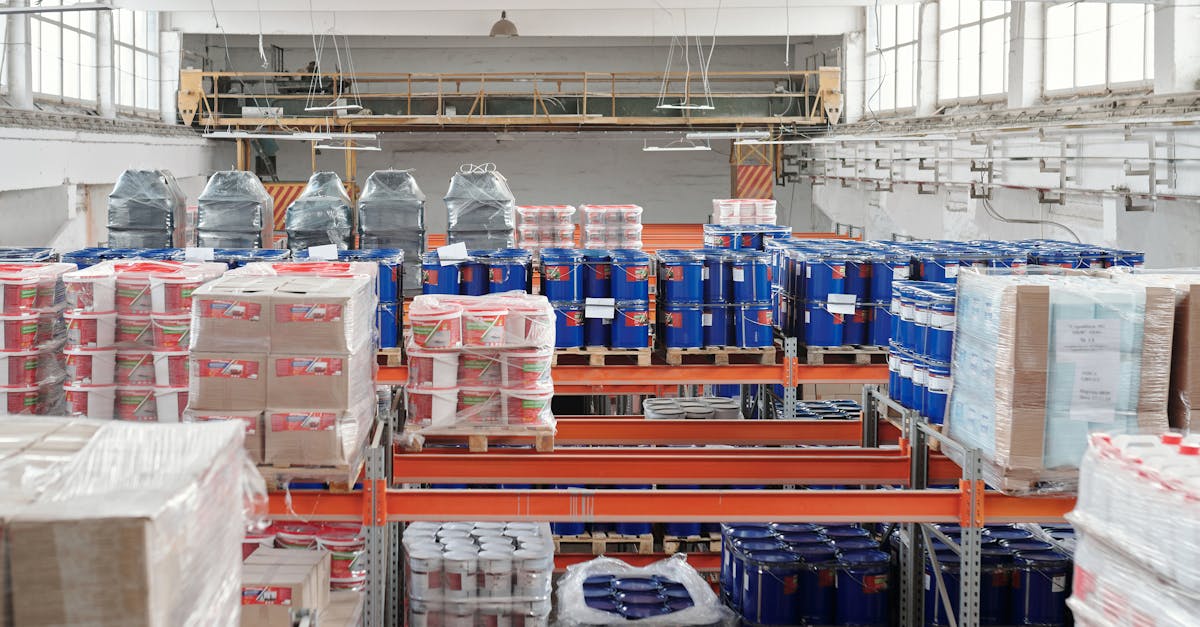
Why You Should Invest in Supplier Development Programs
Implementing robust risk management strategies is essential for organisations looking to fortify their supply chains. This involves conducting thorough risk assessments to identify potential vulnerabilities, such as supplier reliance and geopolitical...
Read more →
Why Supplier Relationship Management is Critical for Success
In today's business landscape, technology plays a pivotal role in optimising Supplier Relationship Management (SRM). Digital tools and platforms enable organisations to gather and analyse data regarding supplier performance, streamlining communicatio...
Read more →
What to Do When Supplier Relationships Go Wrong
When facing challenges in supplier relationships, it is essential to engage with your internal team. Diverse perspectives within your organisation can lead to innovative solutions and a more comprehensive understanding of the issue at hand. Encourage...
Read more →
What to Consider When Choosing Suppliers
Effective communication plays a crucial role in establishing a strong partnership with suppliers. Stakeholders should assess how clearly and promptly potential suppliers respond to inquiries. This responsiveness not only indicates their customer serv...
Read more →
How to Measure Supplier Performance in Your Supply Chain
Supplier feedback is a vital component in gauging overall performance within the supply chain. Engaging suppliers in meaningful dialogue helps to uncover opportunities for improvement. This process encourages suppliers to share their insights, experi...
Read more →
How to Develop an Effective Supplier Relationship Management Strategy
Establishing clear performance metrics and key performance indicators (KPIs) is essential for gauging the effectiveness of supplier relationships. These metrics should align with the strategic objectives of the organisation and reflect the unique cha...
Read more →
Roundup of Key Trends in Supply Chain Management
Strengthening connections with suppliers has become a vital aspect of modern supply chain management. Companies are increasingly recognising that fostering long-term relationships results in improved communication and collaboration. This shift allows...
Read more →
Review of Top Demand Forecasting Tools
This particular tool offers robust features for businesses seeking to enhance their demand forecasting accuracy. Its advanced algorithms leverage historical data, market trends, and even external variables to create insightful predictions. Users ofte...
Read more →
10 Best Practices for Supplier Relationship Management
A culture of continuous improvement creates opportunities for both suppliers and businesses to strengthen their partnerships. Regular feedback and open communication are crucial components in this process. Establishing a clear framework for performan...
Read more →
Historical Overview of Supply Chain Management Practices
Recent years have witnessed a marked increase in awareness surrounding environmental issues, prompting businesses to reconsider their supply chain practices. The integration of sustainability into supply chain management entails the adoption of vario...
Read more →
Why Demand Forecasting Fails in Some Businesses
Many businesses rely on outdated systems that are ill-equipped to handle modern forecasting needs. Traditional tools often lack the capability to analyse big data, making it difficult to identify patterns and trends. These limitations can lead to ina...
Read more →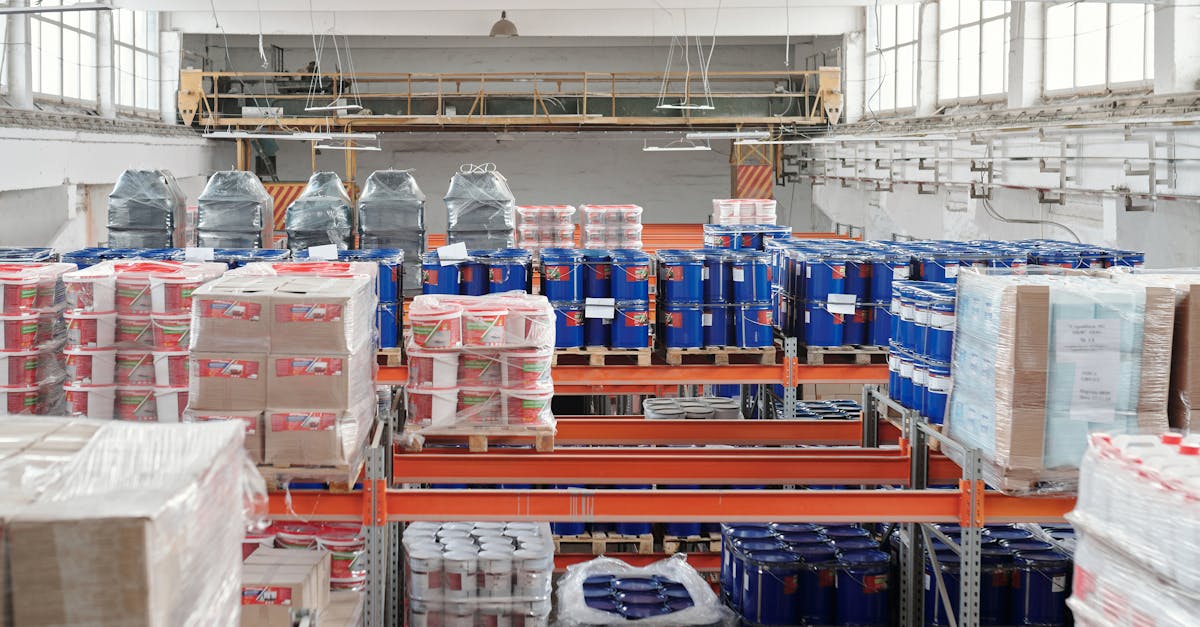
Why Logistics Performance Measurement is Crucial
Logistics companies often seek ways to improve efficiency and reduce costs. One effective method involves benchmarking their performance against established industry standards. This process helps organisations identify areas where they excel and wher...
Read more →
What is Demand Forecasting and Its Importance
Data serves as the backbone of demand forecasting, shaping the accuracy and reliability of predictions within various industries. Historical sales figures, market trends, and consumer behaviour analytics are critical components that contribute to und...
Read more →
What to Consider When Choosing Suppliers
When selecting suppliers, customer service standards should be a key consideration. Evaluate how suppliers respond to inquiries and the speed of their responses. Quick and effective communication can significantly impact your operations, so it’s es...
Read more →
How to Improve Inventory Management Practices
Effective demand forecasting relies heavily on the analysis of historical data. Businesses should gather and examine past sales trends to identify patterns and seasonality. This information can guide future predictions and help determine stock levels...
Read more →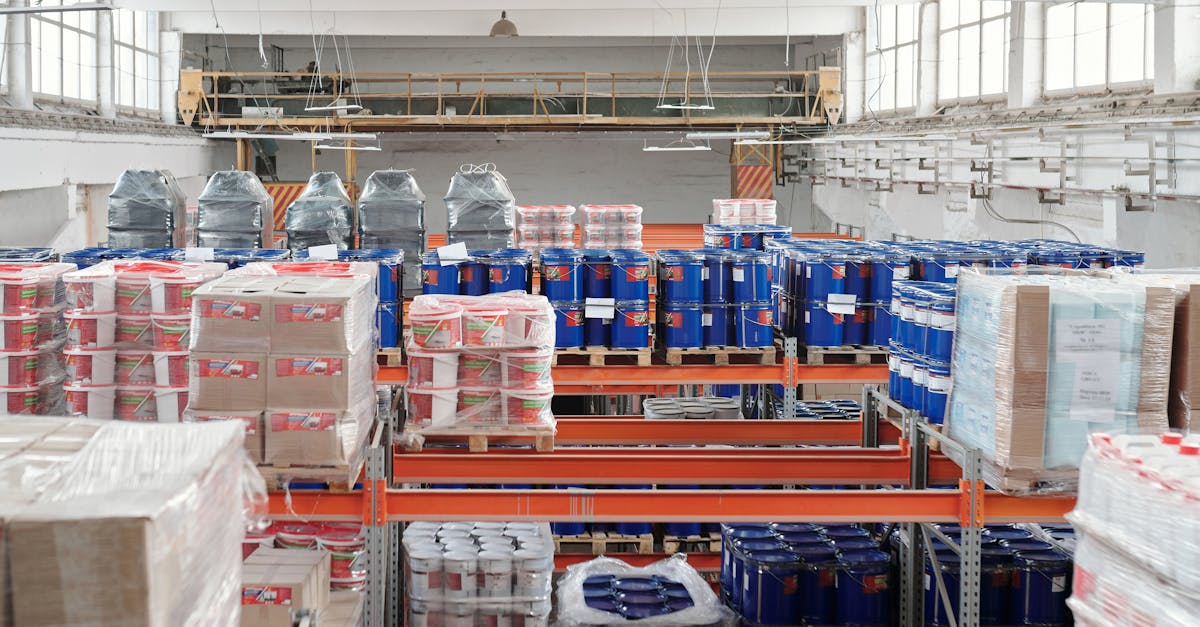
How to Develop an Effective Supply Chain Strategy
Technology plays a crucial role in streamlining supply chain processes, enabling businesses to improve efficiency and reduce costs. Automation tools within warehouses enhance inventory management, allowing for real-time tracking of stock levels and o...
Read more →
Roundup of Top Inventory Management Strategies
Regular inventory audits are essential for maintaining accurate stock records. Various methods can be employed, including periodic audits, which assess inventory at set intervals, and perpetual audits, which track inventory levels in real-time. Each ...
Read more →
Review of Leading Inventory Management Software
The ability of inventory management software to seamlessly integrate with other business systems stands as a crucial factor in its effectiveness. Applications that connect with accounting software, CRM systems, and e-commerce platforms enable organis...
Read more →
Why Accurate Inventory Forecasting Matters
Understanding market trends is crucial for businesses aiming to optimise their inventory management. Trends can indicate shifts in consumer preferences, emerging technologies, or economic variables influencing purchasing behaviours. By closely monito...
Read more →
10 Best Practices for Effective Inventory Management
An essential aspect of effective inventory management is the classification of inventory items. Proper classification helps businesses organise stock more efficiently, ensuring that items are easily identifiable and accessible. Different methods can ...
Read more →
Historical Overview of Inventory Management Practices
Advances in technology have transformed how businesses approach inventory management. Tools like automation and artificial intelligence enhance accuracy and efficiency, allowing organisations to predict demand more effectively. Real-time data trackin...
Read more →
Why Inventory Management is Crucial for Business Success
The advancement of technology has significantly transformed the landscape of inventory management. Modern businesses increasingly rely on integrated software systems that streamline processes, enhance accuracy, and reduce manual workloads. These tool...
Read more →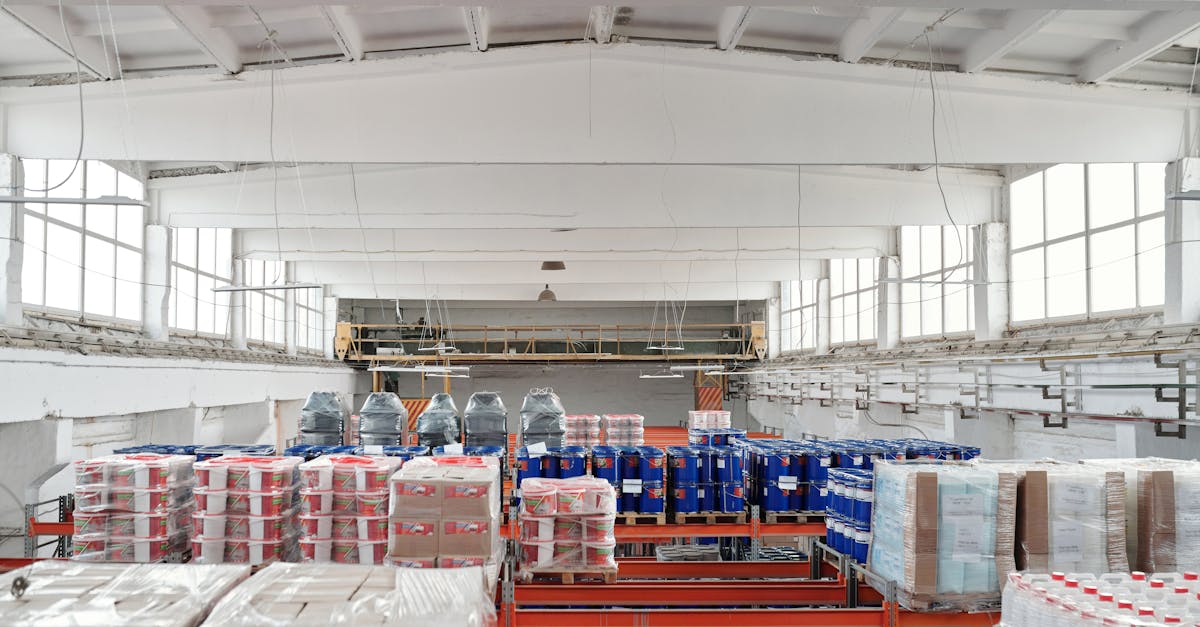
What to Do When Inventory is Over or Under Stocked
Investing in inventory management software can significantly enhance an organisation's ability to monitor stock levels. Such software provides real-time data on inventory, facilitating an accurate understanding of what products are on hand. This not ...
Read more →
What to Consider When Managing Inventory Levels
A robust reordering system is essential for maintaining optimal inventory levels. This involves establishing minimum stock thresholds that trigger reordering when inventory falls below a set point. By analysing historical sales data and inventory tur...
Read more →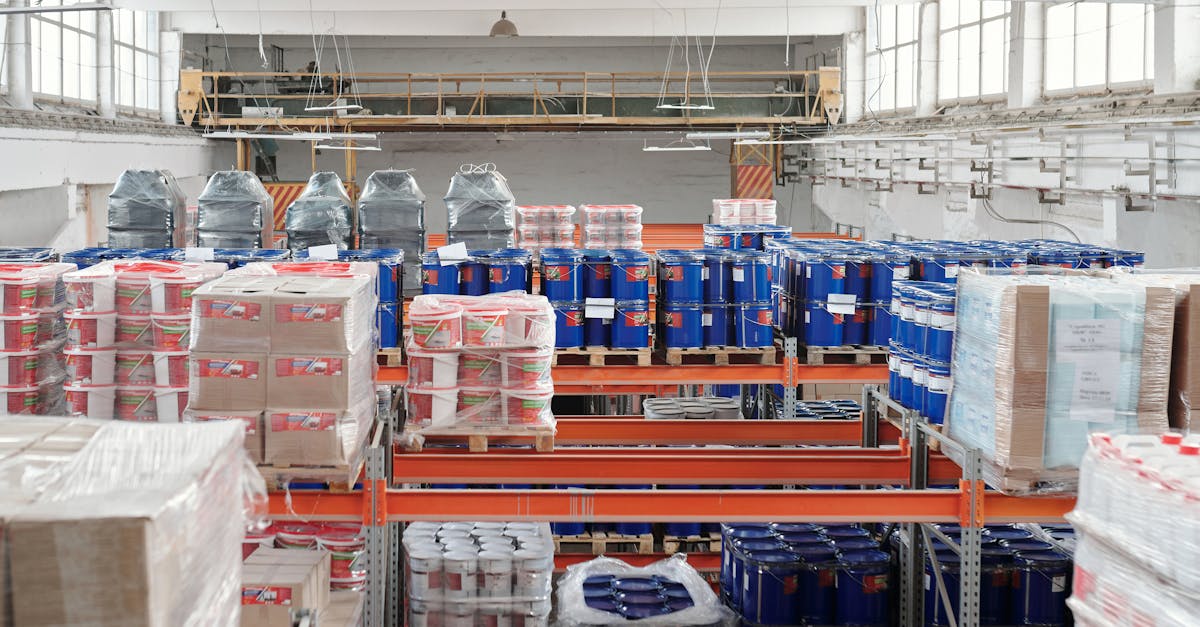
How to Implement Effective Inventory Control Systems
Modern businesses increasingly rely on technology to enhance their inventory management processes. Advanced software solutions streamline tracking and provide real-time information about stock levels. Many options feature automation capabilities that...
Read more →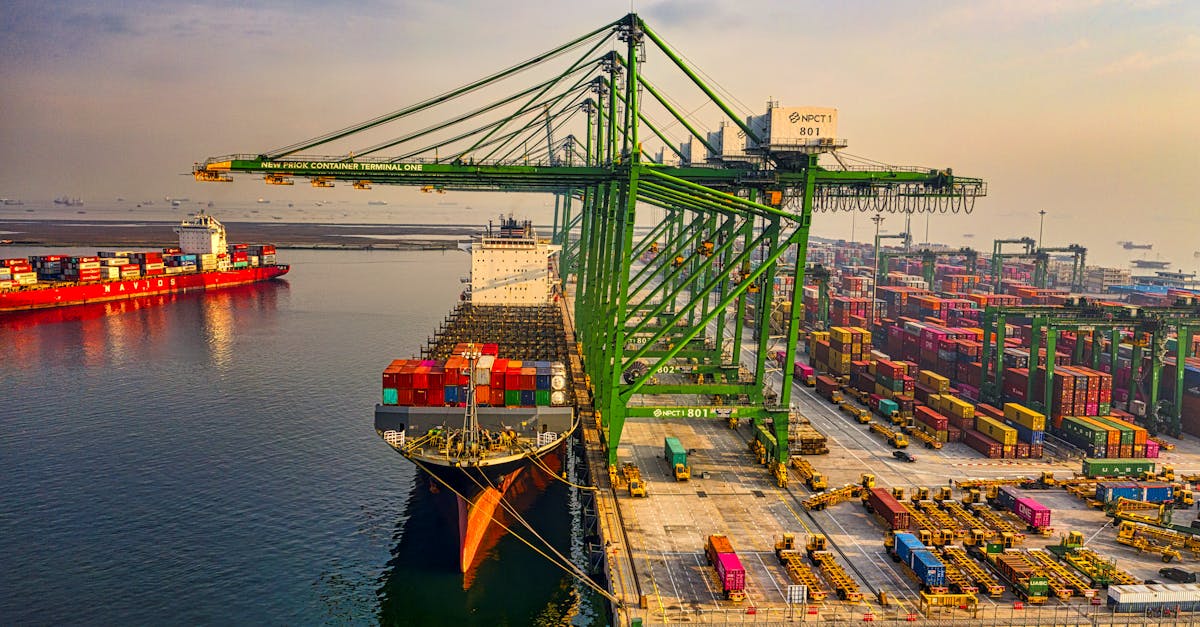
How to Optimise Inventory Management in Supply Chains
Effective inventory auditing techniques are essential for maintaining accuracy in stock levels and ensuring operational efficiency. Regular physical counts, such as quarterly or annual stocktakes, help identify discrepancies between recorded and actu...
Read more →
Roundup of Key Trends in Supply Chain Strategy
The adoption of circular economy principles has emerged as a pivotal trend in supply chain strategy. Businesses are increasingly recognising the importance of resource longevity and waste minimisation. This shift encourages companies to rethink their...
Read more →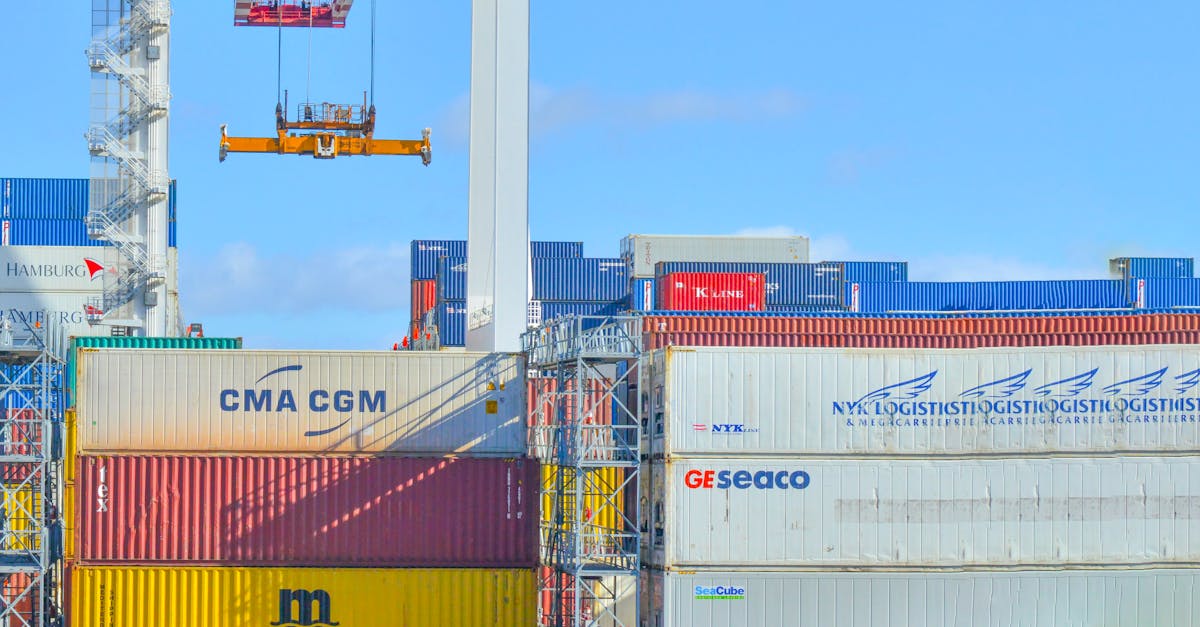
10 Best Practices for Effective Inventory Management
Effective inventory management begins with a clear understanding of what you have in stock. Grouping products into categories based on criteria such as demand, value, or type can lead to better control and visibility. This method not only simplifies ...
Read more →
Historical Evolution of Supply Chain Management
The interconnectedness of global markets has significantly reshaped the landscape of supply chain management. Companies are no longer limited to local suppliers or customers; they can source materials and distribute products across continents. This e...
Read more →
Review of Top Demand Forecasting Tools
Oracle Demand Management Cloud offers a comprehensive suite of features designed to enhance demand forecasting accuracy. Users can benefit from advanced analytics and machine learning capabilities that effectively process historical data. The platfor...
Read more →
Why Supply Chain Strategy Matters in Today's Market
Globalisation has transformed the dynamics of supply chains, enabling businesses to source materials and products from diverse locations around the globe. This interconnectedness offers both opportunities and challenges, as companies can leverage com...
Read more →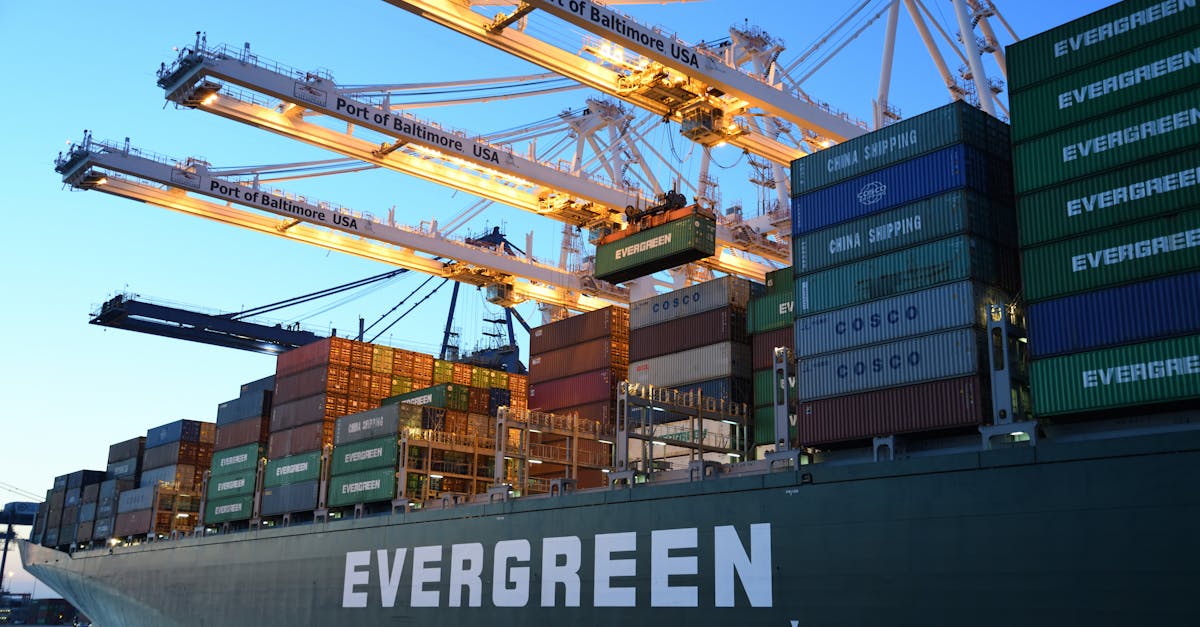
Why Logistics Performance Measurement is Crucial for Success
Benchmarking serves as a vital tool in understanding logistics performance by providing a reference point for comparison against industry standards. Companies can evaluate their processes and strategies through an analysis of key performance indicato...
Read more →
What to Consider When Building Supplier Relationships
Trust serves as the foundation of any successful relationship between a business and its suppliers. Establishing clear communication channels is essential for fostering this trust. Regular updates regarding expectations and changes in demand can prev...
Read more →
What is Demand Forecasting and Why is it Important
Demand forecasting relies heavily on an array of tools and technologies designed to enhance accuracy and efficiency. Advanced software solutions, incorporating artificial intelligence and machine learning, enable businesses to process vast amounts of...
Read more →
How to Develop an Effective Supply Chain Strategy
Integrating technology into supply chain processes can significantly enhance efficiency and responsiveness. Companies increasingly depend on advanced software solutions to streamline operations, manage inventory, and predict demand. Automation and da...
Read more →
How to Optimise Inventory Management for Maximum Efficiency
Effective categorisation of inventory plays a crucial role in optimising management processes. By sorting products into distinct groups, businesses can gain clarity on stock levels and streamline operations. Common categorisation methods vary, but th...
Read more →